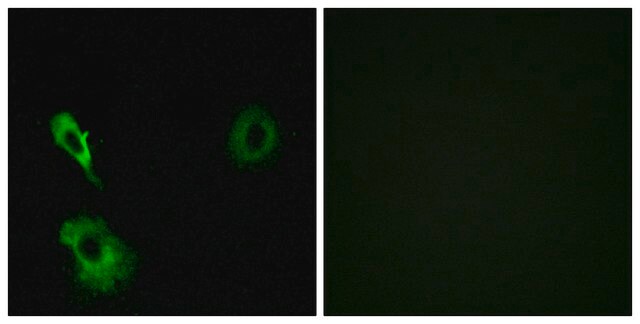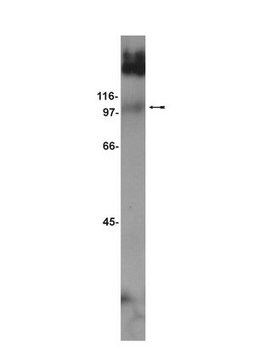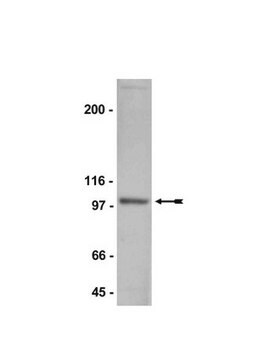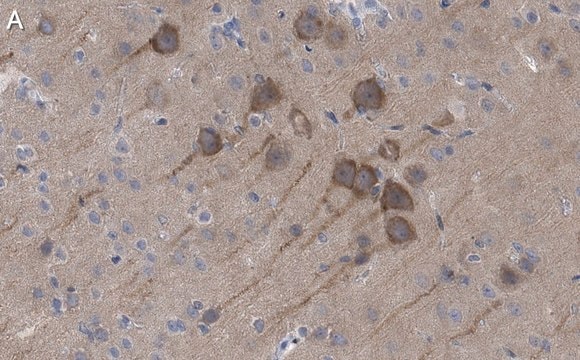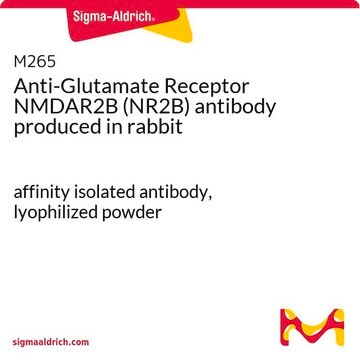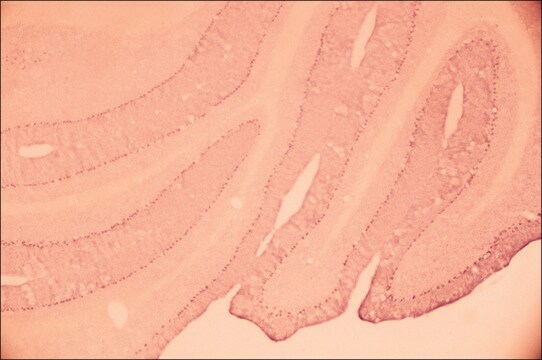SAB4501325
Anti-MGLUR7 antibody produced in rabbit
affinity isolated antibody
Synonym(s):
GPRC1G, GRM7, MGLUR7, mGluR7, otein name Metabotropic glutamate receptor 7
About This Item
IHC
WB
immunohistochemistry: 1:50-1:100
western blot: 1:500-1:1000
Recommended Products
biological source
rabbit
Quality Level
conjugate
unconjugated
antibody form
affinity isolated antibody
antibody product type
primary antibodies
clone
polyclonal
form
buffered aqueous solution
mol wt
antigen 102 kDa
species reactivity
mouse, human, rat
concentration
~1 mg/mL
technique(s)
ELISA: 1:20000
immunohistochemistry: 1:50-1:100
western blot: 1:500-1:1000
NCBI accession no.
UniProt accession no.
shipped in
wet ice
storage temp.
−20°C
target post-translational modification
unmodified
Gene Information
human ... GRM7(2917)
Related Categories
General description
MGLUR7 (glutamate metabotropic receptor 7) is coded by the glutamate receptor, metabotropic 7 (GRM7) gene. It is expressed in several parts of the central nervous system. mGluR7 is located in the presynaptic zone of the synaptic cleft of glutamatergic synapses. GRM7 gene is mapped to human chromosome 3p26. Anti-MGLUR7 Antibody detects endogenous levels of total MGLUR7 protein.
Immunogen
Immunogen Range: 866-915
Biochem/physiol Actions
Features and Benefits
Physical form
Disclaimer
Not finding the right product?
Try our Product Selector Tool.
Storage Class Code
10 - Combustible liquids
WGK
nwg
Flash Point(F)
Not applicable
Flash Point(C)
Not applicable
Regulatory Listings
Regulatory Listings are mainly provided for chemical products. Only limited information can be provided here for non-chemical products. No entry means none of the components are listed. It is the user’s obligation to ensure the safe and legal use of the product.
JAN Code
SAB4501325-100UG:
Choose from one of the most recent versions:
Certificates of Analysis (COA)
Don't see the Right Version?
If you require a particular version, you can look up a specific certificate by the Lot or Batch number.
Already Own This Product?
Find documentation for the products that you have recently purchased in the Document Library.
Our team of scientists has experience in all areas of research including Life Science, Material Science, Chemical Synthesis, Chromatography, Analytical and many others.
Contact Technical Service